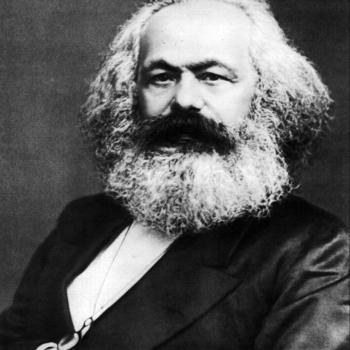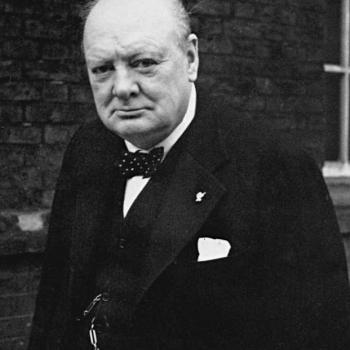 I’ve just returned from a very stimulating and convivial conference in Philadelphia sponsored by the Agora Institute – a very well-conceived young outfit animated by some very thoughtful and well-read people. This conference was on the theme of “Subjectivity” – a term that itself is more a question than a stable concept. There is the modern self, with its bent towards relativism; but then it seems that the modern subject emerges somehow from what we might take to be its opposite, that is, the Christian (or Judeo-Christian) revelation of individual personality as exceeding all worldly or cosmic orders or entities (including political authority, notably). So at the heart of the conference was a question that has driven me at least since my graduate school days, when I conceived a thesis topic on “Reformation and Modernity: the Political Meaning of Calvin’s Theology.” (See the book on Calvin that eventually resulted, at St. Augustine Press.) The conference included 8 presenters and 8 respondents, the 16 of us representing 4 broad perspectives or philosophical/theological traditions with something to say on subjectivity in relation to Christianity and modernity: Bernard Lonergan (of whom I knew little and was happy to learn), the New Natural Law (Robbie George’s influential school, based upon work by the likes of Grisez and Finnis), Eric Voegelin (Do Not Immanentize the Eschaton!), and Leo Strauss. ( Strauss, you know, is the one who started the Iraq wars and all that – he did this somehow by writing extremely dense interpretations of Plato and Alfarabi, for example, and despite dying in 1973 as I recall). Of course I was there representing a more “Straussian” perspective, which is fair enough: I may be a renegade from the Straussian school, or a dissident, a revisionist, or even a heretic – but there is no doubt that Strauss is the most important basis of or foil for my heretical thinking. See my “Strauss for Believers” at First Thingsonline. http://www.firstthings.com/blogs/firstthoughts/2014/01/leo-strauss-for-believers
I’ve just returned from a very stimulating and convivial conference in Philadelphia sponsored by the Agora Institute – a very well-conceived young outfit animated by some very thoughtful and well-read people. This conference was on the theme of “Subjectivity” – a term that itself is more a question than a stable concept. There is the modern self, with its bent towards relativism; but then it seems that the modern subject emerges somehow from what we might take to be its opposite, that is, the Christian (or Judeo-Christian) revelation of individual personality as exceeding all worldly or cosmic orders or entities (including political authority, notably). So at the heart of the conference was a question that has driven me at least since my graduate school days, when I conceived a thesis topic on “Reformation and Modernity: the Political Meaning of Calvin’s Theology.” (See the book on Calvin that eventually resulted, at St. Augustine Press.) The conference included 8 presenters and 8 respondents, the 16 of us representing 4 broad perspectives or philosophical/theological traditions with something to say on subjectivity in relation to Christianity and modernity: Bernard Lonergan (of whom I knew little and was happy to learn), the New Natural Law (Robbie George’s influential school, based upon work by the likes of Grisez and Finnis), Eric Voegelin (Do Not Immanentize the Eschaton!), and Leo Strauss. ( Strauss, you know, is the one who started the Iraq wars and all that – he did this somehow by writing extremely dense interpretations of Plato and Alfarabi, for example, and despite dying in 1973 as I recall). Of course I was there representing a more “Straussian” perspective, which is fair enough: I may be a renegade from the Straussian school, or a dissident, a revisionist, or even a heretic – but there is no doubt that Strauss is the most important basis of or foil for my heretical thinking. See my “Strauss for Believers” at First Thingsonline. http://www.firstthings.com/blogs/firstthoughts/2014/01/leo-strauss-for-believers
Now, since I’ve aroused your intense curiosity, here is the thrust of what I had to say about Strauss on Christian and modern “subjectivity”:
But Strauss judges it best not to get philosophy mixed up in the articulation of personal love or hopes of universal salvation associated with love; instead he prefers to keep sacred law separate from the nobility of philosophy, Jerusalem (i.e., Judaism) separate from Athens: reason on the one hand, and divine law on the other – and never the twain must meet. Strauss must know that this strategy is quixotic, since as soon as he says we must be open to the excellence of philosophy and to the obedience of the pious, he has made it impossible not to wonder how these dispositions can be integrated, or at least held together in the same soul. But Strauss suppresses any such integration because he abominates the modern synthesis, which binds philosophic excellence to the project of universal salvation. In other words, he sees, with Tocqueville, that the idea and sentiment of equality, or for that matter the ethic of subjection to “the other,” are vulnerable to the limitless passion for technological mastery.
I go on to explain that, while I appreciate Strauss’s concern for the slippery slope from spiritual subjectivity to technological mass society, I find Tocqueville’s more balanced strategy for confronting this challenge more appealing and, finally, truer to who we are as spiritual as well as political beings.











